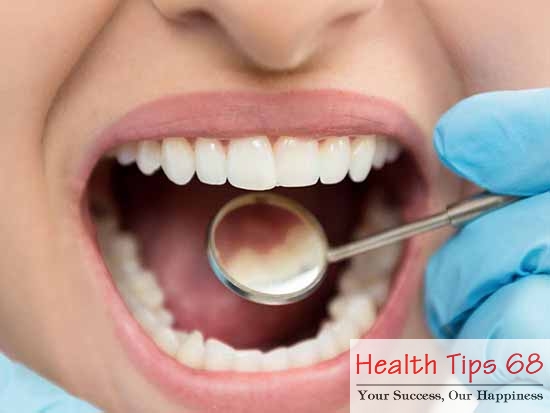How can I improve my oral health fast most?
An effective oral hygiene routine is essential for maintaining good dental health. Additional steps can be taken to improve the condition of your oral health if you suffer from stains to your teeth, or from smelly breath.
Your smile depends on simple dental care habits, such as brushing and flossing. But are you using the right techniques? Follow these steps to protect your oral health.
Read More : What Is An Important Health Tips That Nobody Follows
>> Top Diet and Fitness Tips for Men
Brushing for oral health
Oral health begins with clean teeth. Keeping the area where your teeth meet your gums clean can prevent gum disease, while keeping your tooth surfaces clean can help you stave off cavities.

Consider these brushing basics from the American Dental Association :
- Brush your teeth twice a day. When you brush, don’t rush. Take time to do a thorough job.
- Use the proper equipment. Use a fluoride toothpaste and a soft-bristled toothbrush that fits your mouth comfortably. Consider using an electric or battery-operated toothbrush, which can reduce plaque and a mild form of gum disease (gingivitis) more than does manual brushing. These devices are also helpful if you have arthritis or other problems that make it difficult to brush effectively.
- Practice good technique. Hold your toothbrush at a slight angle — aiming the bristles toward the area where your tooth meets your gum. Gently brush with short back-and-forth motions. Remember to brush the outside, inside and chewing surfaces of your teeth, as well as your tongue.
- Keep your equipment clean. Always rinse your toothbrush with water after brushing. Store your toothbrush in an upright position and allow it to air-dry until using it again. Try to keep it separate from other toothbrushes in the same holder to prevent cross-contamination. Don’t routinely cover toothbrushes or store them in closed containers, which can encourage the growth of bacteria, mold and yeast.
- Know when to replace your toothbrush. Invest in a new toothbrush or a replacement head for your electric or battery-operated toothbrush every three to four months — or sooner if the bristles become irregular or frayed.
Flossing for oral health
You can’t reach the tight spaces between your teeth and under the gumline with a toothbrush. That’s why daily flossing is important.

When you floss:
- Don’t skimp. Break off about 18 inches (46 centimeters) of dental floss. Wind most of the floss around the middle finger on one hand, and the rest around the middle finger on the other hand. Grip the floss tightly between your thumbs and forefingers.
- Be gentle. Guide the floss between your teeth using a rubbing motion. Don’t snap the floss into your gums. When the floss reaches your gumline, curve it against one tooth.
- Take it one tooth at a time. Slide the floss into the space between your gum and tooth. Use the floss to gently rub the side of the tooth in an up-and-down motion. Unwind fresh floss as you progress to the rest of your teeth.
- Keep it up. If you find it hard to handle floss, use an interdental cleaner — such as a dental pick, pre-threaded flosser, tiny brushes that reach between teeth, a water flosser or wooden or silicone plaque remover.
As long as you do a thorough job, it doesn’t matter if you brush or floss first.
Other oral health care tips

In addition to daily brushing and flossing, consider using mouthwash containing fluoride to promote oral health.
Also, resist the temptation to use toothpicks or other objects that could injure your gums and let in bacteria.
When to see the dentist
To prevent gum disease and other oral health problems, schedule regular dental cleanings and exams. In the meantime, contact your dentist if you notice any signs or symptoms that could suggest oral health problems, such as:
- Red, tender or swollen gums
- Gums that bleed when you brush or floss
- Gums that begin pulling away from your teeth
- Loose permanent teeth
- Changes in the way your top and bottom teeth align with each other
- Unusual sensitivity to hot and cold
- Persistent bad breath or an unusual taste in your mouth
- Changes in the way your dentures or partial dentures fit
- Difficulty swallowing
- Mouth ulcers or sores that don’t heal
Remember, early detection and treatment of problems with your gums, teeth and mouth can help ensure a lifetime of good oral health.
________________________________________________________________________________________Đầu tư là gì? Kiến Thức Đầu Tư Chứng Khoán Quan Trọng Nhất Trong Quá Trình Đầu Tư?
Mở tài khoản chứng khoán TechcomBank nhanh chóng, thuận tiện giao dịch, bảo mật tuyệt đối.
Đầu Tư Chứng Khoán Xu Hướng Đầu Tư 2021 Hướng dẫn kiếm tiền từ đầu tư chứng khoán
Khóa Học Đầu Tư Chứng Khoán - Khóa học chứng khoán online (miễn phí) cho người mới bắt



